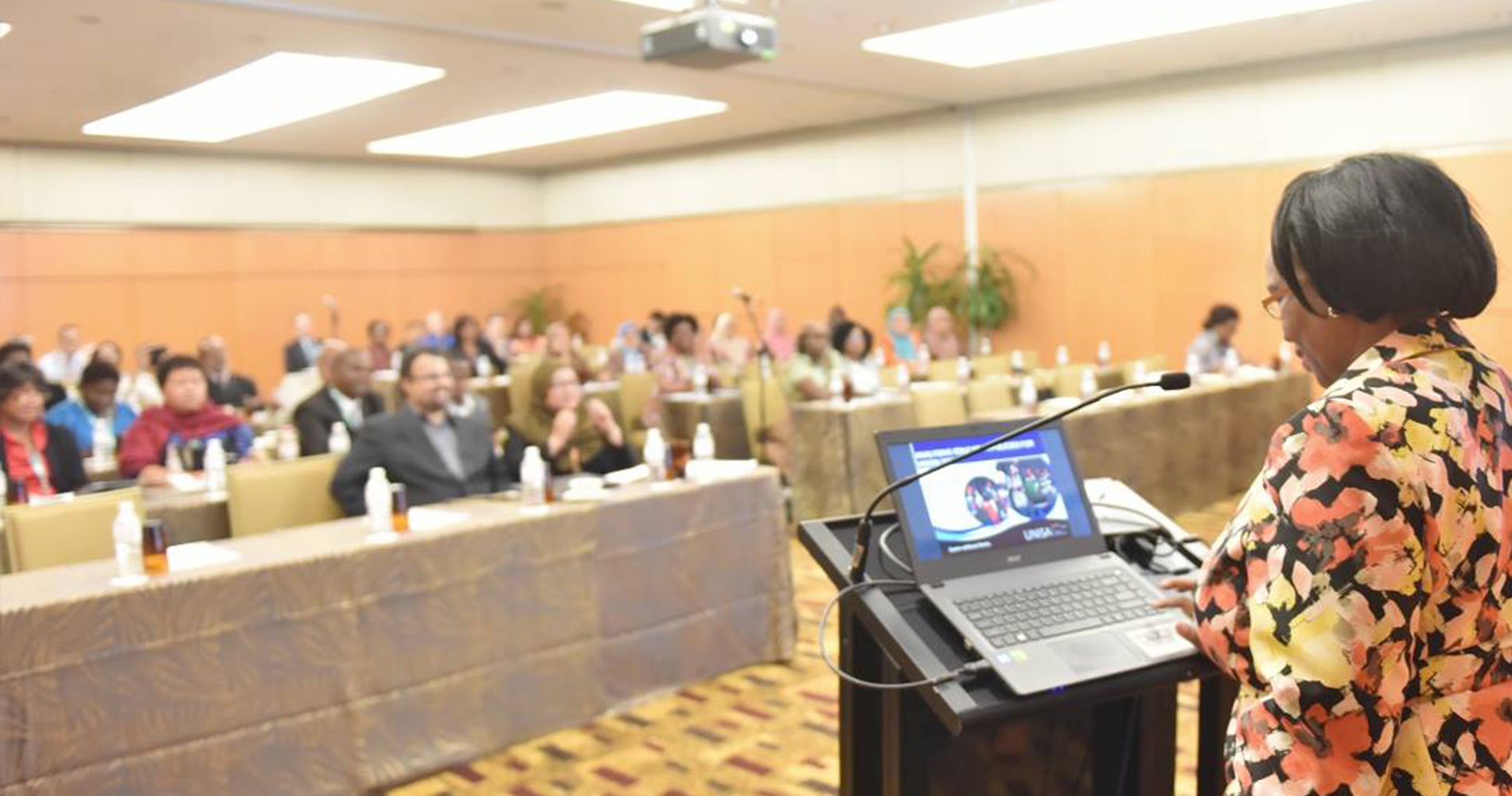
Subtheme: Quality and Equity in Learning
Gender Issues in Equitable Access to Quality Education
Conference Hall 3, 28 November: Paper presenters shared their experiences in improving access to quality education and minimising gender-based inequalities in learning.
Dr Godfrey Mnubi from the Institute of Adult Education, Tanzania, touched on an initiative to improve the quality of education through the use of gender-sensitive student councils. The study found that student councils provide suitable avenues for students to voice concerns and needs, cultivate leadership skills and improve accountability of teachers, schools and students.
More importantly, these councils empower students, particularly girls to advocate and demand for equal rights to education and healthcare. Dr Mnubi concluded that the councils enabled students to apply their communication skills in real life settings besides promoting gender equity and quality education, which the Tanzanian Government is committed to achieve.
Md Abdus Sattar from Bangladesh Open University (BOU) presented his paper on gender-based inequalities in learning in mitigating disaster risk in Bangladesh. His research showed that gender-based inequalities could lead to untold sufferings, reduced healthcare opportunities and higher mortality rate in women. ODL, he said, was found to be an effective tool in mitigating disaster risks where women and girls were given access to education through the use of e-learning and audio-video lectures.
Prof Mostafa Azad Kamal, also from BOU, presented a paper which he co-authored with Ms Frances Ferreira of the COL, focusing on how community engagement and local community organisations contributed to equitable participation of school girls affected by Child, Early and Forced Marriage (CEFM).
The study covered three key areas – the cross-country variations on causes that lead to girls dropping out from schools; the role of community engagement in fostering equal participation of the girls in learning; and the role of local organisations in minimising the vulnerability to CEFM and improving access to relevant and quality education and learning.
The study covered respondents in both urban and rural areas of Bangladesh, Pakistan and India. The findings showed that Bangladesh has the highest rate of child marriages among the three countries. Professor Kamal concluded that the majority of the girls indicated their desire to be educated for their empowerment and better livelihood, and these can be achieved with the help of community engagement and local community organisations.
Mr Phoebus Mere of the University of South Africa looked into the learning styles in an organisation that was engaged in e-learning. The study, which involved a telecommunication company, revealed that the dominant learning style was the kinaesthetic learning style which involved “learning by doing”. Mr Mere said it was important to consider individual learning styles before embarking on a learning project, as learning styles can helped improve the quality and equity in learning.